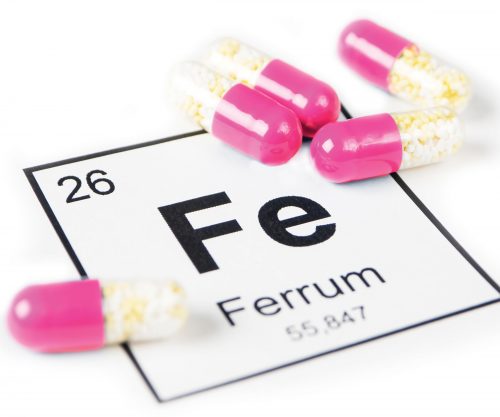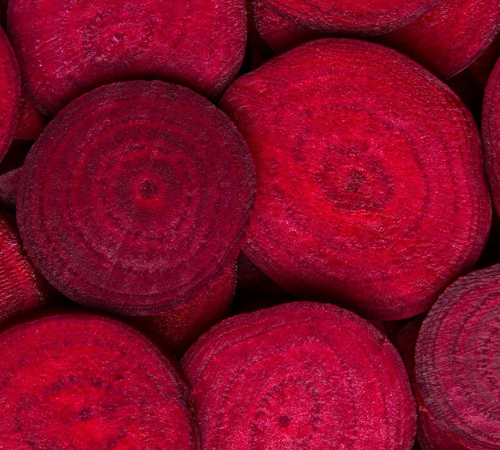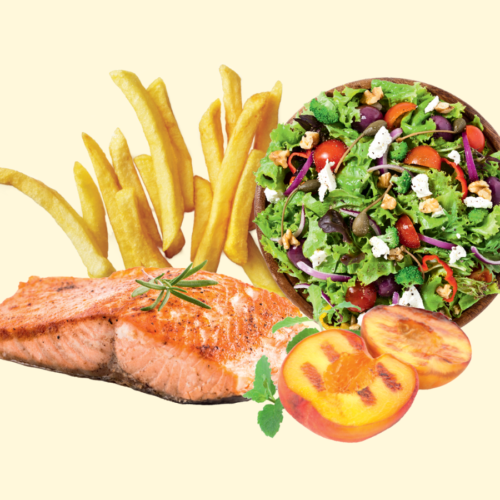
Having enough iron is important for energy levels, brain function and more. Dietitian Katrina Pace looks at how to make sure you’re getting enough.
There may be times in life when iron supplements are suggested. Because of the iron lost during menstruation it’s often women who’re more at risk of iron deficiency and iron deficiency anaemia.
Iron is critical to making haemoglobin, which transports oxygen around the body. If our cells aren’t getting enough oxygen, we can feel fatigued and run down. As haemoglobin is red, not having enough iron can leave us looking pale. A lack of oxygen can also affect how our brain develops and how we learn.
How much iron do we need?
The recommended dietary intake (RDI) for teenage girls is 15mg and for adult women 18mg each day. The RDI for teen boys is 11mg and for adult men 8mg daily.
High-dose supplements may be prescribed by a doctor to help replenish low body stores. However, excess iron is stored in the liver and heart. Very high doses (for adults, approximately 60mg/kg of weight, for children 36mg/kg or more) can be fatal.
Who needs to keep an eye on iron levels?
- Teenage girls
- Sporting girls and women
- Pregnant women
- Infants and toddlers
- Frequent blood donors
- People with cancer, heart failure or gastrointestinal disorders.
What should I look for in a supplement?
If you have been prescribed iron, the likelihood is you’ll be given an iron sulphate supplement, with or without vitamin C, providing 105mg iron per tablet.
Over-the-counter iron supplements may be better tolerated but contain substantially less iron – only 5mg to 24mg per tablet. If you’ve been diagnosed with iron deficiency anaemia, this just isn’t enough to get you back on track.
Carbonyl iron, ferrous fumarate, ferrous sulphate, iron amino acid chelate and ferrous gluconate are the most common types of iron supplements available.
Bioavailability of iron varies between supplements. Carbonyl iron gives fewer side effects than other formulations, and ferrous gluconate is better absorbed.
I’m tired – do I need to take an iron supplement?
There are many reasons why you may be tired or lacking energy: working long hours, not eating healthy foods regularly throughout the day, trying to cram too much in.
So, addressing possible reasons you might be lacking energy is a great place to start. Visit your GP to get your iron levels checked rather than taking a supplement you may not need.
I get constipation when I take iron supplements
Many people complain of constipation with high-dose iron supplements, but to treat low iron levels, it’s important to take the amount prescribed. Counteract the constipation by increasing the amount of water you drink and fibre in your diet. Taking psyllium husk, eg, Metamucil, may also help, but drinking enough water is essential. It is important to not take your iron supplement at the same time as a high-fibre meal because less iron will get through to your blood. Combining the iron supplement with vitamin C means the iron will be absorbed more efficiently.
Article sources and references
- Iron Disorders Institute. Supplements, irondisorders.org Accessed August 2018 Manoguerra AS et al. 2005. Iron ingestion: An evidence-based consensus guideline for out-of-hospital management. Clinical Toxicology 43:553-570http://www.irondisorders.org/
- National Health and Medical Research Council & Ministry of Health. Nutrient reference values for Australia and New Zealand. Iron, nrv.gov.au/nutrients/iron Accessed August 2018https://www.nrv.gov.au/
- National Institutes of Health Office of Dietary Supplements. 2018. Iron. Fact sheet for health professionals, ods.od.nih.gov Accessed August 2018https://ods.od.nih.gov/factsheets/list-all/
www.healthyfood.com










